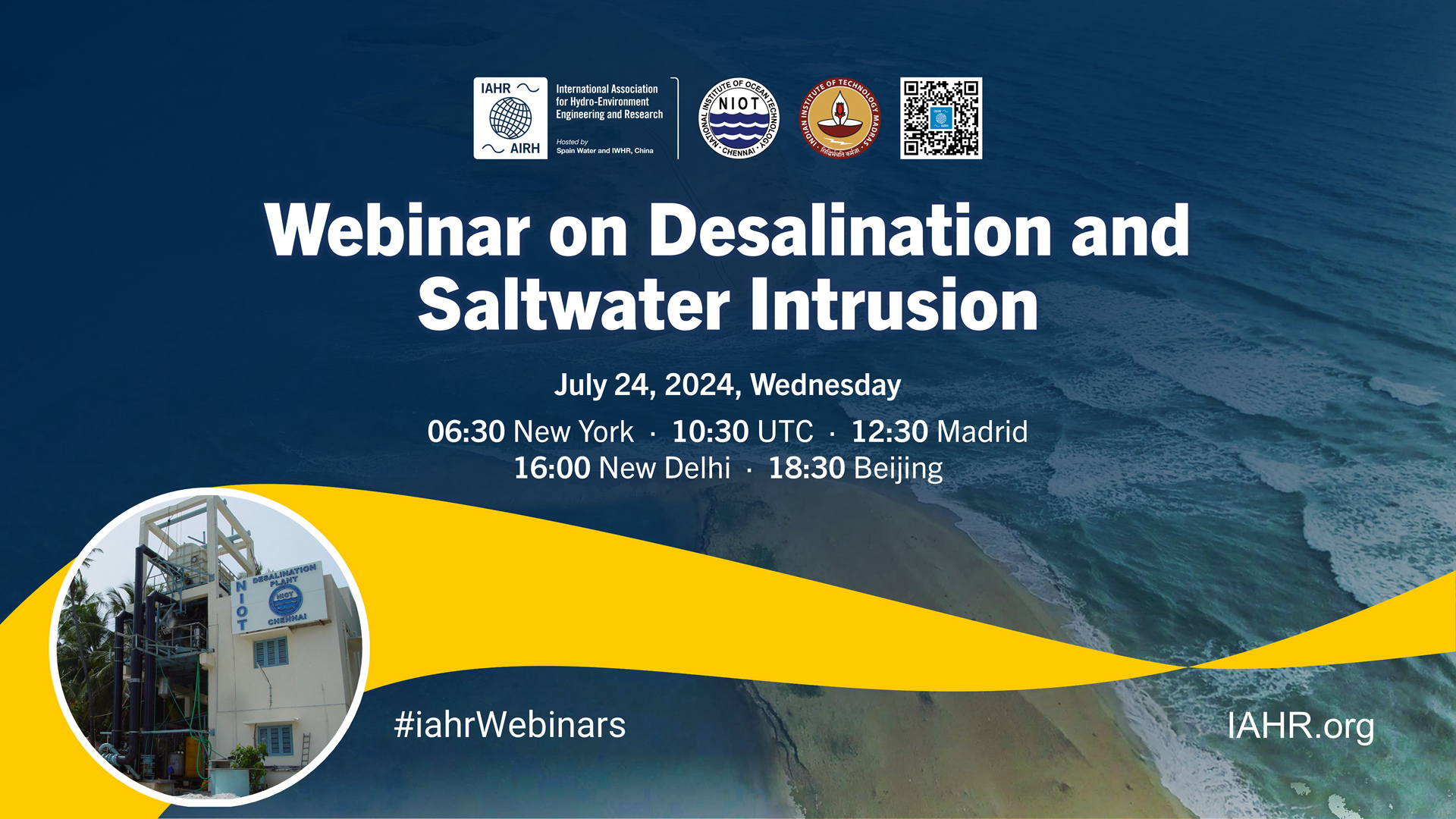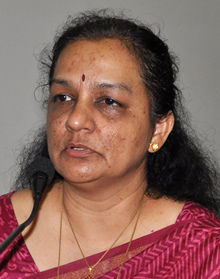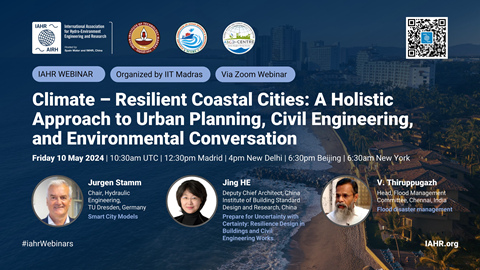Webinar on Desalination and Saltwater Intrusion

~ FREE ZOOM WEBINAR ~
Webinar on Desalination and Salt Water Intrusion
24 July 2024
06:30AM New York | 10:30AM UTC | 12:30PM Madrid | 4PM New Delhi | 6:30PM Beijing
The world today faces increasing freshwater shortages due to a growing global population, climate change, pollution, rising consumer demand, and resource exploitation. To combat this, water desalination has become a crucial method for producing freshwater. Meeting water demands efficiently, cost-effectively, and sustainably requires the right combination of renewable energy and desalination technology.
Desalination is essential for addressing the rising global need for freshwater by converting seawater or brackish water into potable water. This technology is particularly vital in arid and water-stressed regions. The primary goal of desalination is to remove dissolved salts and other impurities from water, making it suitable for drinking, irrigation, and industrial use. Techniques such as reverse osmosis, distillation, and electro dialysis are used to separate salts and contaminants, resulting in clean and usable freshwater.
While desalination offers a reliable solution to water shortages, it also presents challenges. The process can be energy-intensive, raising concerns about environmental impact and sustainability. Additionally, disposing of the brine byproduct generated during desalination poses environmental challenges. Despite these issues, advancements in desalination technologies, ongoing research, and increasing global water demands have driven the continued development and adoption of desalination as a crucial component of water resource management. As water scarcity issues escalate, desalination’s role in providing a sustainable and diversified water supply is likely to become even more significant.
Another significant issue along the coastal areas is saltwater intrusion, posing both human-made and natural challenges. Saltwater intrusion is the process by which seawater enters and contaminates freshwater aquifers, making the water unsuitable for drinking, irrigation, and other uses. This phenomenon is a significant problem for contamination of freshwater supplies, ecosystem disruption and soil salinization, increased costs for water treatment and property damage, etc.
To address these issues, a workshop has been planned to exchange experience and practice, to educate students and also to inform other stakeholders about environment-friendly technologies for desalination and saltwater intrusion. This webinar, jointly organized by IAHR, the National Institute of Ocean Technology, India (NIOT), the Indian Institute of Technology Madras (IITM), and Anna University, will cover the following topics:
Various desalination technologies and projects
Renewable energy-powered desalination
Experience and practice associated with saltwater intrusion control
Sustainable solutions and technologies
Speakers
Pradip K. Tewari
Rajendra Prasad
Mario Valente
Zhongyuan Lin
Chair
Programme
Opening and introduction
Prof. Purnima Jalihal | Senior Scientist and Head of the Energy and Fresh Water Department, National Institute of Ocean Technology, India
Presentations
Coastal Water Resources of India -- Challenges and Opportunities
Rajendra Prasad | Professor Emeritus in Andhra University, India5-10 Mins Discussion
Discussion on the Movement Law and Prevention Strategy of Saltwater Intrusion in the Pearl River Estuary
Zhongyuan Lin | Senior Engineer, River and Coast Research Institute, Pearl River Water Resources Research Institute (PRWRRI), China5-10 Mins Discussion
Sustainable Desalination
Pradip K. Tewari | Jal Jeevan Mission (JJM) Professor Chair and Head Department of Chemical Engineering in IIT Jodhpur, India5-10 Mins Discussion
Implementing desalination plants – the essential role of marine works
Manuela Escarameia | Technical Director, Engineering Group of HR Wallingford, UK
Mario Valente | Civil Engineer, Engineering Group of HR Wallingford, UK5-10 Mins Discussion
Closing
Prof. Purnima Jalihal | Senior Scientist and Head of the Energy and Fresh Water Department, National Institute of Ocean Technology, India
More information
How to participate: This webinar will be held via ZOOM Webinar, please click here to register and get the Zoom Webinar link.
To request your Certificate of Participation, please fill an online form, the form is only available during the duration of the webinar.
Previous Events
2024-05-10






